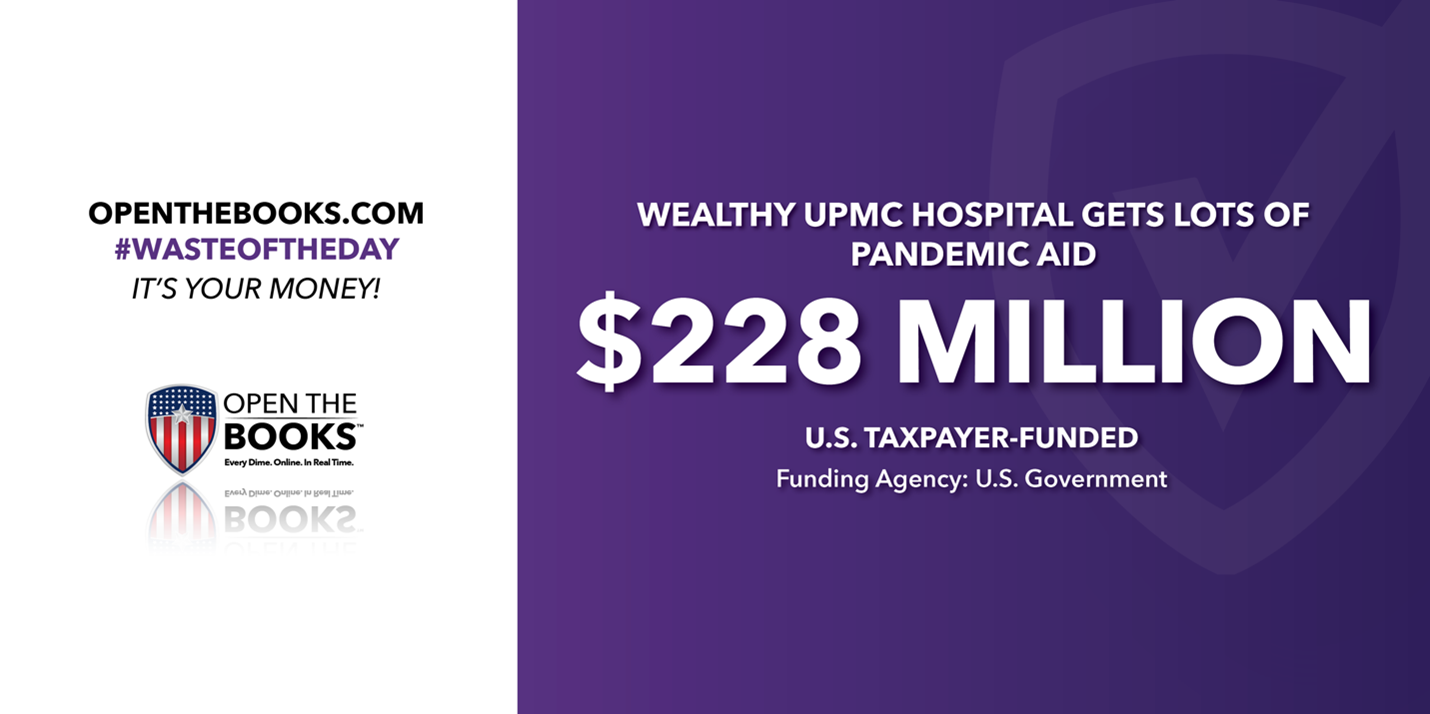Non-Profit Hospitals Make Big Profits--While Claiming Tax-Free Status
Despite their name, non-profit hospitals build up wealth, take advantage of huge tax breaks, collect federal research grants, and pay their executives massive salaries all the while raising prices on patients.
They appear to be charities in name only, with the top 20 reporting more than $116 billion in investments in 2019.

While flush with money, they didn’t invest in basic emergency planning before the Covid-19 pandemic.
There has been criticism of these giant hospital systems that collect government aid while they hoard their own money as smaller hospitals struggle and some close their doors.
In June 2019, our auditors at OpenTheBooks published an oversight report “Top 82 U.S. Non-Profit Hospitals, Quantifying Government Payments & Financial Assets.”
We reported then that the these hospitals had combined revenues of $296.6 billion for their primary entities in FY2017, the latest year available.
A total of $297.5 million was spent on salaries for the top paid executives. Banner Health in Phoenix, Arizona had the highest paid top executive collecting $21.6 million, followed by Kaiser Foundation at $10.7 million.
A new documentary “InHospitable,” is a feature film that exposes American hospitals’ significant role in our broken healthcare system. The documentary debuted at the New York City Documentary Film Festival and calls attention to the wealth that non-profit hospitals amass. The film does an admirable job of highlighting the many ways asset-rich “non-profit” hospitals have gamed the system to earn big profits.
Furthermore, the film highlights the citizens and patients who fought the University of Pittsburgh Medical Center (UPMC). In 2019, the hospital system tried to sever ties with the insurance company Highmark. Critics alleged that the multi-billion dollar non-profit hospital’s policy decisions were increasing the price of healthcare for regular people across the region.
With $5.7 billion in cash and investments, UPMC received more federal pandemic aid than any hospital in Pennsylvania, collecting $228 million because aid was calculated based on a hospital’s revenue, not on its need.
Non-profit hospitals should start acting like charities — or else they should start paying their taxes.
The #WasteOfTheDay is presented by the forensic auditors at OpenTheBooks.com.





